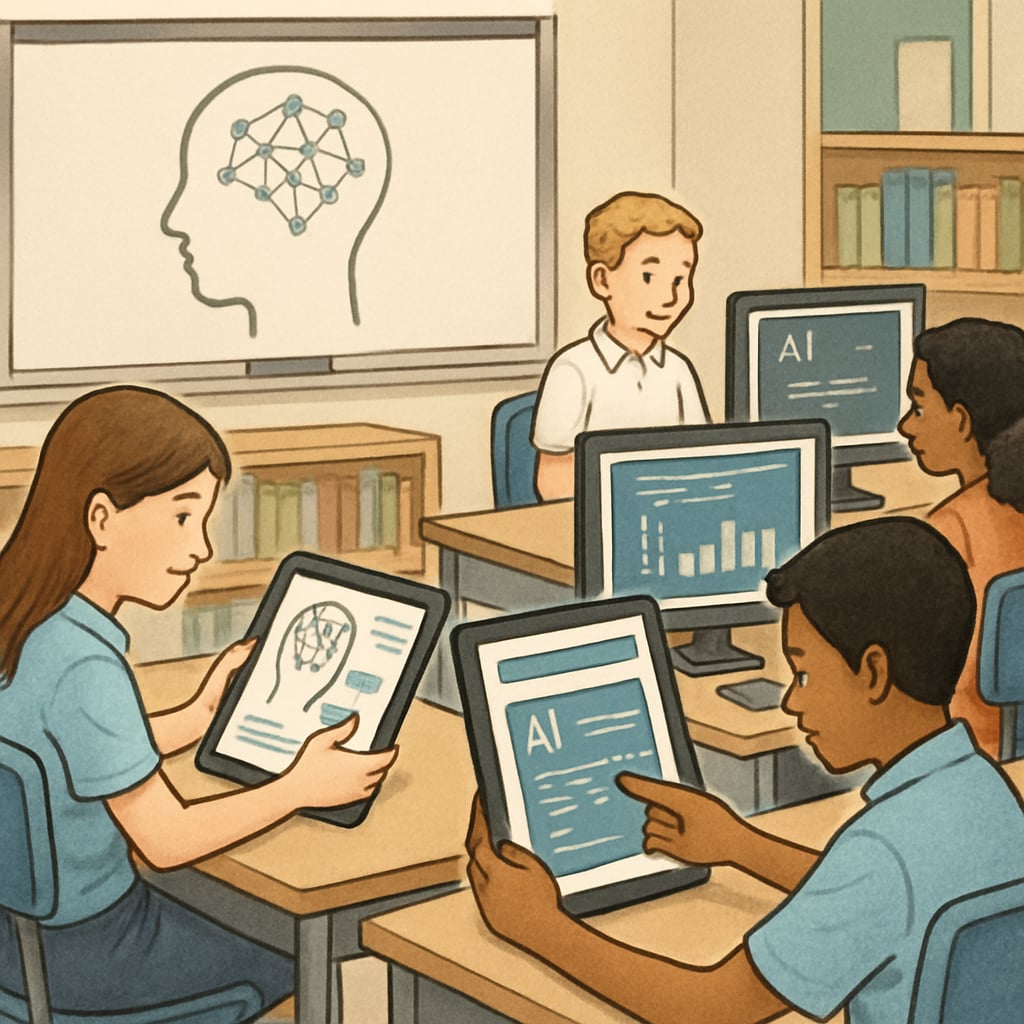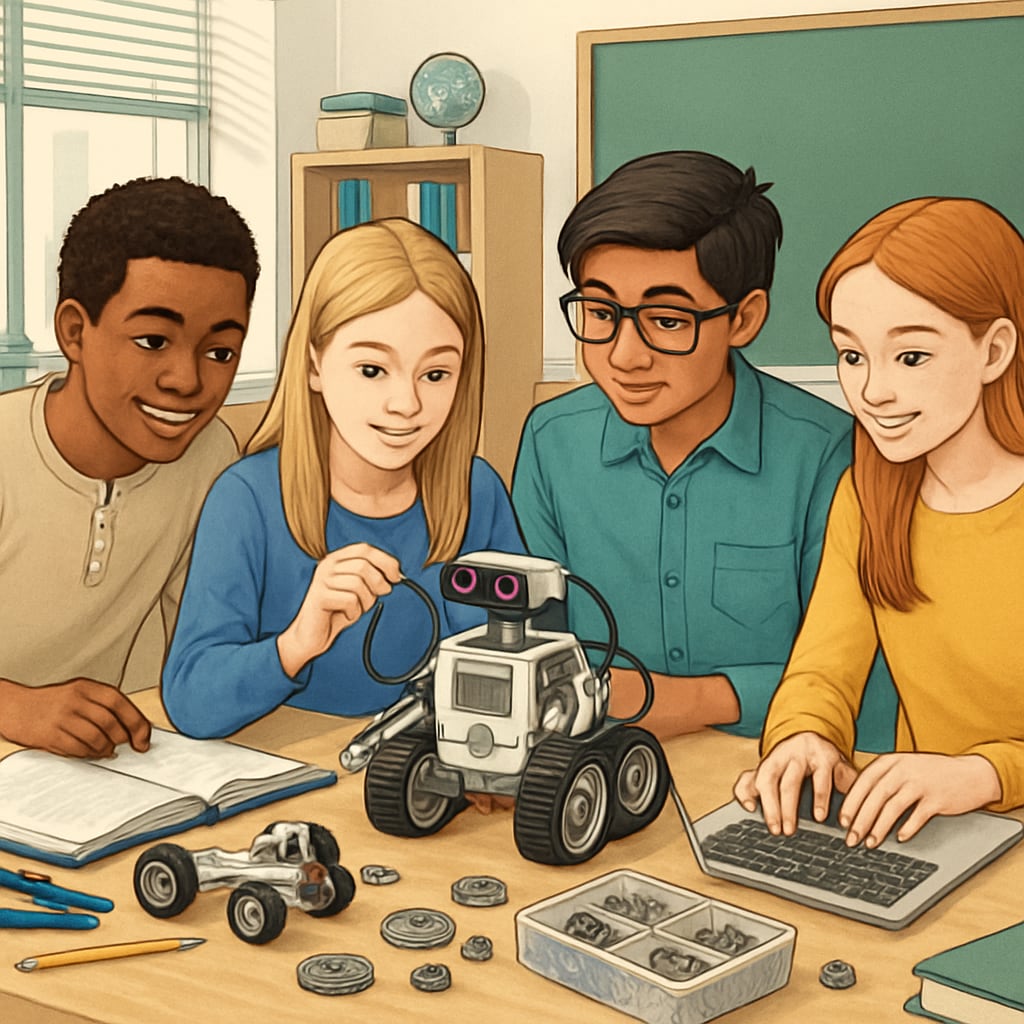Artificial intelligence (AI) is transforming industries at an unprecedented pace, raising critical questions about its impact on education, higher studies, and career prospects. As automation continues to reshape the workforce, concerns about the long-term value of traditional education and the relevance of human skills have grown. For K12 schools, the challenge lies in preparing students for a future that is both unpredictable and demanding. This article discusses how K12 education can evolve in the AI era to address these concerns, foster adaptability, and equip students with the tools they need to thrive.
Challenges in K12 Education in the AI Era
AI’s widespread integration into various sectors is creating significant disruptions in traditional career paths. For example, jobs that require repetitive tasks, such as data entry or basic customer service, are increasingly being automated. As a result, educators must rethink the curriculum to focus on skills that AI cannot easily replicate, such as creativity, critical thinking, and emotional intelligence. This shift challenges the conventional approach to education, which has long emphasized rote learning and standardized testing.
Furthermore, parents and students are growing anxious about whether pursuing higher education will lead to stable employment. The pressure to balance academic excellence with practical skill-building is mounting, making it imperative for schools to adopt innovative teaching methods.

Preparing Students for the Future Workforce
To prepare students for the evolving job market, K12 education must emphasize adaptability and lifelong learning. Schools should integrate programs that teach coding, data analysis, and AI ethics to familiarize students with technology. In addition, interdisciplinary approaches, such as combining STEM (Science, Technology, Engineering, and Mathematics) subjects with the arts, can help develop well-rounded individuals capable of creative problem-solving.
Partnerships with local industries and technology companies can also provide students with hands-on experience and mentorship opportunities. For instance, internships and workshops in AI-driven fields can help students understand the practical applications of their studies and build confidence in navigating future careers.

Alleviating Anxiety About AI-Replaced Jobs
One of the most pressing concerns for families is whether AI will render human workers obsolete. While automation may eliminate certain types of jobs, it also creates new opportunities. Educators must communicate this duality to students and parents to mitigate fear and foster optimism. For example, roles in AI development, machine learning, and cybersecurity are projected to grow significantly in the coming years.
Moreover, schools can encourage students to focus on “human-centric” skills that AI cannot replicate, such as empathy, leadership, and communication. Through activities like group discussions, community service projects, and leadership training, students can develop these essential skills.
Readability guidance: Schools should provide clear pathways for students to explore emerging fields and adapt curricula to reflect technological advancements. Additionally, educators should ensure that learning environments are inclusive and supportive, promoting resilience and curiosity.
Conclusion
Artificial intelligence is undoubtedly reshaping education and career landscapes, presenting both challenges and opportunities. By embracing innovation and focusing on adaptability, K12 schools can help students prepare for the uncertainties of the future. Through skills-based learning, interdisciplinary approaches, and open communication about societal changes, educators can empower students to thrive in the AI era.
Ultimately, education must be viewed as a dynamic process that evolves alongside technological advancements. With proactive measures, K12 schools can ensure that students are not only prepared for AI-driven careers but also equipped with the resilience and creativity to lead fulfilling lives.


